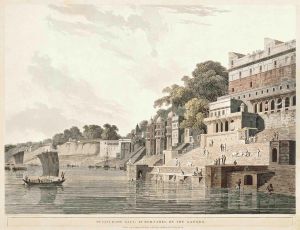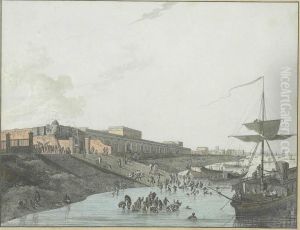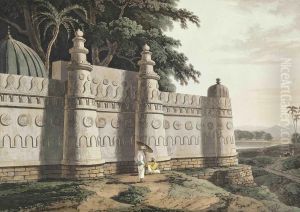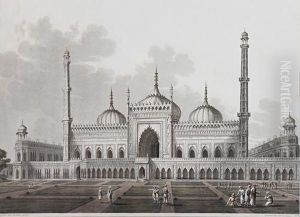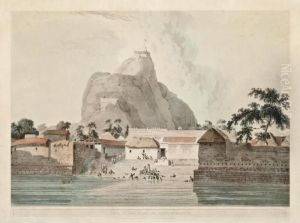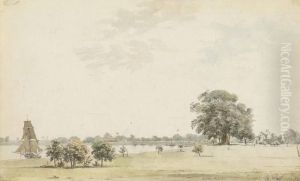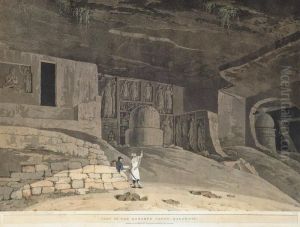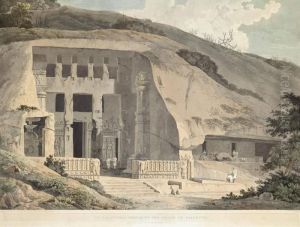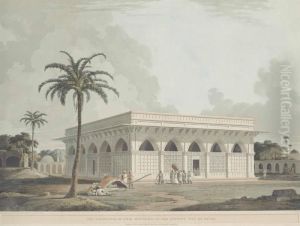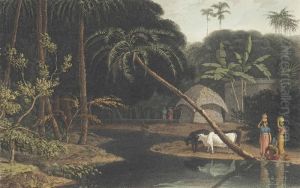Daniell Thomas & William Paintings
Thomas Daniell and his nephew William Daniell were British artists who are most famously known for their extensive series of prints and paintings that depict the landscape and architecture of India. Thomas Daniell was born in 1749 in Kingston upon Thames, and William Daniell, his nephew, was born twenty years later in 1769. Their artistic journey in India began in 1785 when Thomas, accompanied by William, embarked on a voyage to India to capitalize on the growing interest in the subcontinent amongst the British public.
After arriving in India, they spent the next nine years traveling extensively across the vast country, from its southernmost tip at Cape Comorin to the mountains of the Himalayas in the north. They meticulously documented the architectural wonders, landscapes, and scenes of daily life they encountered. Their work was not just an artistic endeavor but also an attempt to comprehensively catalogue the rich cultural and geographical diversity of India during the late 18th century.
In 1795, after returning to Britain, they began publishing a series of aquatint engravings titled 'Oriental Scenery' that would eventually include six volumes and become their most famous work. These engravings were based on the drawings they had made in India and were instrumental in shaping the British and European public's perceptions of Indian landscapes and architecture.
Thomas Daniell was granted the Royal Academy membership in 1799, a recognition of his artistic contributions. Over the years, they continued to publish more works on India, including 'Antiquities of India' and 'A Picturesque Voyage to India by the Way of China.'
Thomas Daniell died in 1840, and William Daniell died three years earlier in 1837. Their legacy lives on through their detailed and picturesque representations of India, which remain a valuable resource for understanding the country's history and architecture. Their work is not only appreciated for its artistic merit but also for its historical significance, offering a window into the India of their times.
